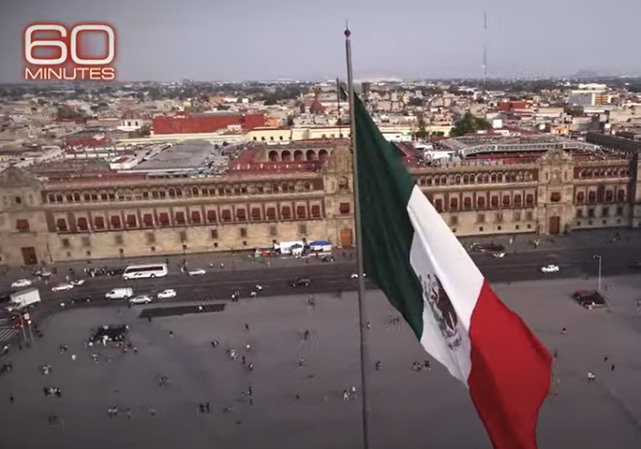Over the recent weekend, CBS’s “60 Minutes” aired a segment focused on gun control in Mexico, highlighting that the country has only one legal gun store located on a heavily fortified military base in Mexico City. The report exposed the stringent requirements imposed on prospective buyers, including psychological evaluations, drug screenings, and thorough background checks. Despite these rigorous regulations, the segment sparked considerable controversy on social media, especially on platforms like Twitter/X, where users pointed out the stark contrast between civilian restrictions and the overwhelming firepower wielded by violent drug cartels that significantly contribute to Mexico’s high levels of violence.
“60 Minutes” emphasized a narrative that framed the influx of illegal firearms in Mexico as primarily a consequence of U.S. gun laws, intimating that American policies were indirectly responsible for the rampant violence across the border. This narrative drew immediate scrutiny from online commentators who invoked the controversial “Fast and Furious” program initiated during the Obama administration, which allowed for the tracing of firearms sold by U.S. dealers to Mexican cartels, raising questions about the media’s understanding of the complex dynamics surrounding gun violence in Mexico.
The segment pointed out that, while Mexico’s constitution permits citizens to bear arms similar to the U.S., the execution of this right is heavily constrained by a plethora of regulations designed to limit civilian access to firearms. The single authorized gun store sells around a thousand weapons per month, predominantly shotguns, small caliber rifles, and handguns, while the types of firearms favored by cartels, such as military-grade weapons, are not available through legal channels.
Social media responses to the segment were predominantly critical of the conclusions drawn by “60 Minutes.” Users highlighted the irony of highlighting Mexico’s extensive restrictions on lawful gun ownership while simultaneously noting that the nation contends with extreme violence and crime, predominantly perpetrated by cartels that are well-armed. Critics pointed out that such restrictions may not prevent crime but rather disarm law-abiding citizens, leaving them defenseless against the weaponry of organized crime.
Many social media participants underscored the apparent disconnect between the data presented on gun ownership and the reality on the ground in Mexico, where violent crime rates remain alarmingly high despite stringent gun control measures. Users sarcastically noted that the existence of only one heavily regulated gun store does not correlate with lower crime rates or a decreased incidence of gun-related homicides. The juxtaposition between the supposed success of gun laws and the ongoing brutality in cartels’ operations prompted a flurry of dismissive remarks questioning the efficacy of such regulations.
The prevailing sentiment among critics was one of skepticism regarding the editorial choices of “60 Minutes,” with some lamenting the program’s perceived departure from hard-hitting journalism in favor of a biased narrative. The overall discourse highlighted a widespread frustration with the portrayal of gun laws and violence in Mexico, further fueled by a broader conversation about the responsibilities of media in accurately reporting complex issues on gun violence and the political implications stemming from such narratives.

